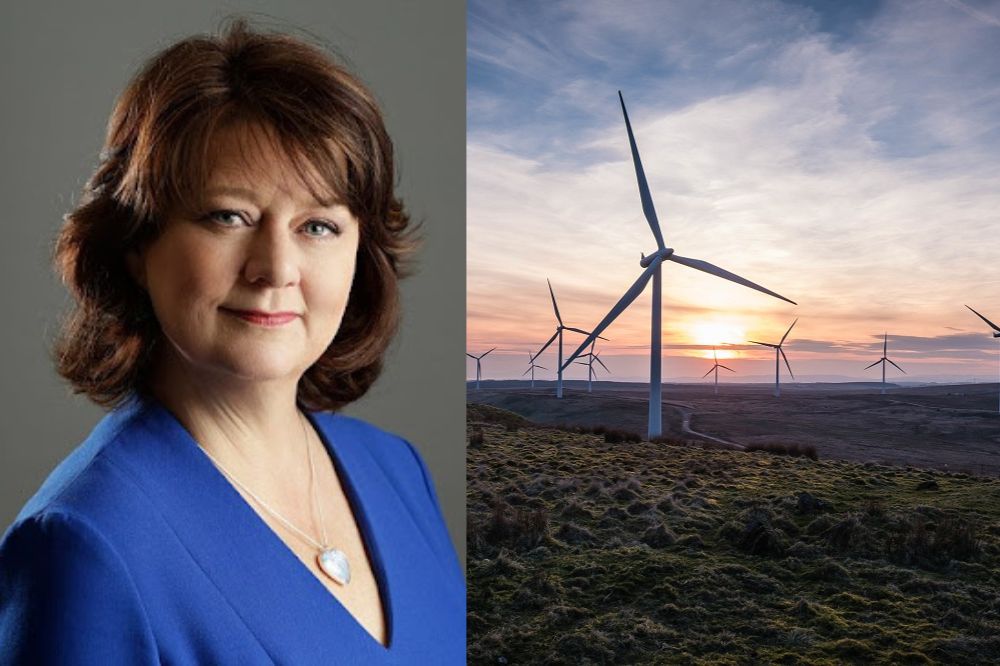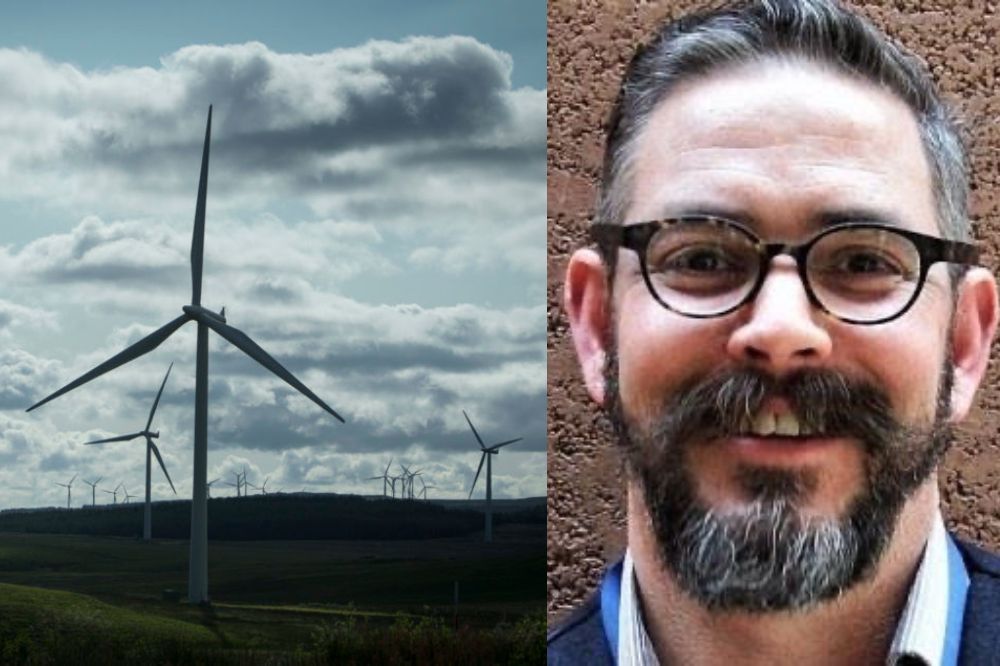Community Energy offers a solution to Wales’ energy concerns

Leanne Wood & Ben Ferguson, Co-Executive Directors, Community Energy Wales
Despondency and impotence are words which describe how many of us feel about the numerous and various problems, challenges, and threats we all face.
It’s often frustrating to see and describe what is going wrong and despair about it. The challenge, then, is to know what practical action we can take to solve the problem.
That’s why we saw Stephen Price’s opinion piece on energy (published on Nation Cymru on 14 January 2024) as an opportunity to outline to your readers who might not yet be aware, that something can be done, that lots is already being done and what more we can all to do to realise the fantastic opportunities for Welsh communities in what we hope will be a green energy boom.
Change is coming
A big change to our society is on its way. It has to. The question is – how can we make sure people in this country benefit from this energy boom and are not left bust, as we have been so many times before?
There is a way – community energy.
Stephen is right to point out that the electricity that will be generated from a developer seeking planning permission for a windfarm on land in Blaenau Gwent & Caerphilly County, (among the most economically deprived counties) will not be used locally.
Nor will the profits remain local. He says: “So this energy that could heat and power every single one of these homes – where is it going? Back into the ‘national grid’ of course! And its profits? Shareholders in Spain.”
The way our system and markets work mean that it is currently not possible for people in the vicinity of any large-scale renewable energy generator to buy that locally produced energy and benefit directly from it. Electricity produced at smaller scale and locally costs less, avoiding expensive transmission costs.

Given we have net zero targets to hit, huge fuel poverty and global conflicts impacting on energy security, wouldn’t it make more sense for governments’ energy strategies to aim to meet as much of the demand for domestic & small business electricity as possible from local sources?
This would reduce bills for consumers, reduce pressure on the transmission network as well as improve our communities’ energy security.
Local trading would also contribute to building up a base of Welsh energy assets and would create the business conditions that would help to expand the community energy sector, with more ownership of energy assets in the hands of Welsh communities.
Power in the hands of the community
When communities own their energy assets, they get to directly decide how their community benefits from the profits of those assets. They vote on how the profits are spent.
There are some fantastic examples of communities already doing this – and they can be found in our recent State of the Sector report State of the Sector 2023 (communityenergywales.org.uk). Community energy is more than profit – all profits are re-invested in the local community, to great effect.
Community Energy Wales and our members are campaigning for local trading because we see it as a game-changer for our sector. It is also the only way we believe that can transition to a net zero economy in a just way.
At the moment, the electricity market is regulated by OFGEM. It would be so much simpler if the conditions for local trading could be regulated in Wales.
OFGEM and the UK government failed last year to take the opportunity to include the changes that would allow for local trading in the UK Energy Act. That leaves us in Wales to do what we can within the existing regulatory framework and devolved powers, working with the new Welsh Government / Plaid Cymru initiative Ynni Cymru to see how we can progress local trading without regulatory change.
This is happening in parallel with campaigning for the political change – including the devolution of powers over energy regulation. To be kept informed of Community Energy Wales’ work on this and to help us campaign for change, you can sign up to Rhan Ni – our movement for community energy champions here: subscribepage.io/K7A905
Shared ownership
And what about the point made regarding the shareholders in Spain?
Many renewable electricity developers are headquartered abroad, some are government-owned companies. (Many countries got off the mark quicker in developing renewable energy technologies than we did here). The best developers offer part ownership. Under these arrangements, there are local shareholders, meaning an energy asset base is being built.
Best practice is when wind and solar developers actively look to see how they can work with the spirit of Welsh government guidance, which expects there to be an offer shared ownership of new renewable energy generation. The unwritten expectation is that this would amount to 10-15% of the project.
A different story
Community Energy Wales is engaging and challenging private renewable energy developers to ensure we realise the best possible projects from both a commercial and from a community perspective, together. If you want to engage a developer about a project near you, we can help.
The need for these projects is clear – 2023 was a record-breaking year in terms of temperature levels. The model of shared ownership advocated by Community Energy Wales is a way to ensure that more of the benefits can be retained locally.
While there may be plenty of reasons to be despondent about political change and to feel impotent, community energy has the potential to tell a different story.
Find out more about Community Energy Wales and get involved here.
Support our Nation today
For the price of a cup of coffee a month you can help us create an independent, not-for-profit, national news service for the people of Wales, by the people of Wales.







I would far rather see the economics of a wind farm explained than hear it will power x number of homes every time a new project is proposed. What firm benefits, and who in that from benefits, what is their buy in, what is their profits forecast. Saying 60k homes for example is nothing because those 60k homes don’t get it for free and still fund indirectly those running the wind farms. They are in it for the profits, not the 60k homes benefit.
A community wind farm/energy opens up far better options for us.
Nothing wrong with having shareholders as long as those shareholders are the local community. If a community of say 5000 adults chip in £200 each that would give the first £1 million share capital, not a lot. So the rest would be funded by government and banks who would enjoy an interest and/or equity return. Others might wish to be shareholders too. The real benefit is that it would keep out the carpetbaggers and other wide boys who seem to be into the “green” industries on a purely extractive basis.
Not going to be easy. But far rather see the funds go back to the people that will be charged (if that makes sense). There must be a sensible way to finance this even free grants to get it going, we seem to be in th position in the UK where everything is sold off for profit. You hook up a load of people to green initiatives, a dynamic system and you reduce the load coming in and required each year, money saved. But then that means profits for the oil and gas is down……boo hoo. But yeah, shareholders local… Read more »
Love Leanne heart of Plaid.